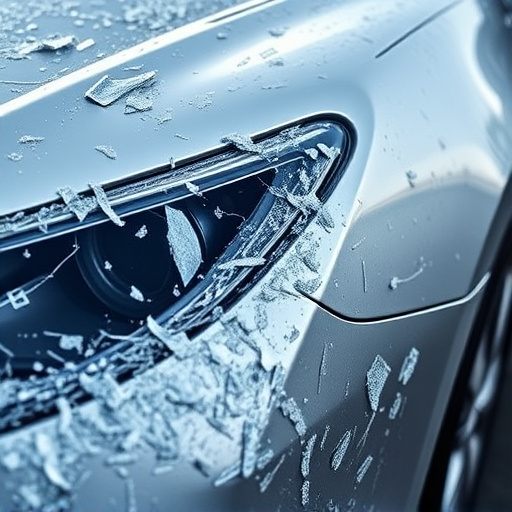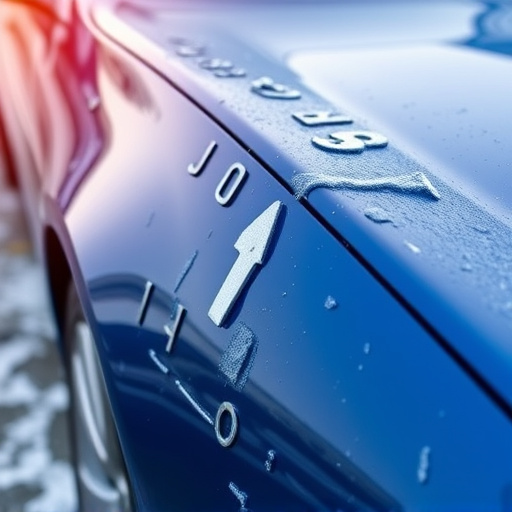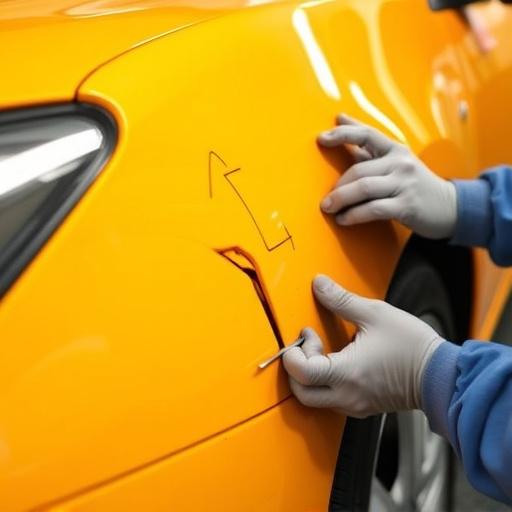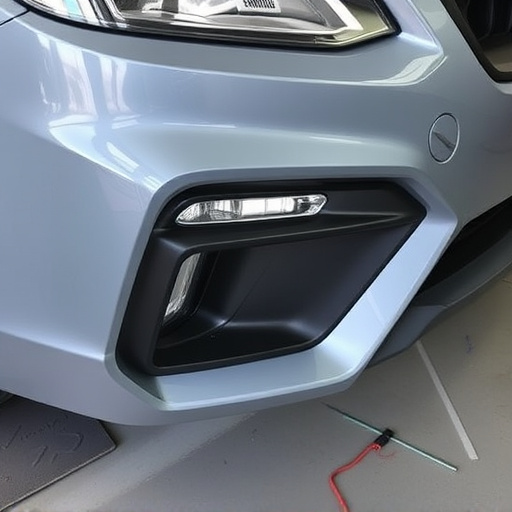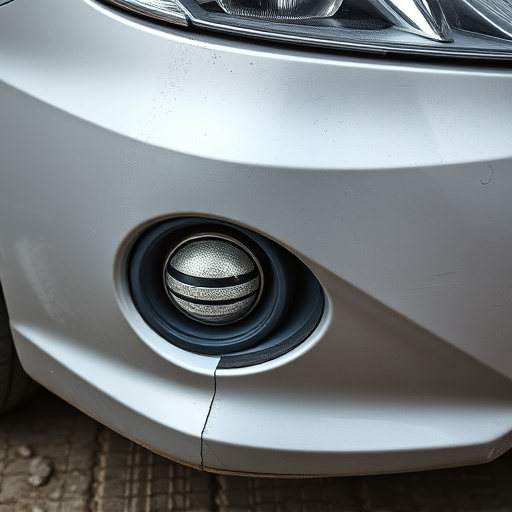Mercedes impact sensor calibration is vital for vehicle safety, ensuring sensors detect and assess collision severity accurately. Regular calibration after service procedures, coupled with system health tests simulating real-world scenarios, identifies and rectifies deviations, enhancing overall safety. These tests are crucial for professional collision repair services, maintaining sensor functionality, and validating structural integrity during repairs.
Mercedes impact sensors play a critical role in enhancing vehicle safety, detecting and responding to collisions. To ensure their optimal performance, proper calibration is essential. This article delves into the intricacies of Mercedes impact sensor calibration, exploring both theoretical understanding and practical verification methods through system health tests. We discuss how these tests ensure precise calibration, ultimately bolstering vehicle safety measures.
- Understanding Mercedes Impact Sensor Calibration
- System Health Tests for Precise Calibration Verification
- Ensuring Optimal Safety: Post-Calibration Assessment
Understanding Mercedes Impact Sensor Calibration
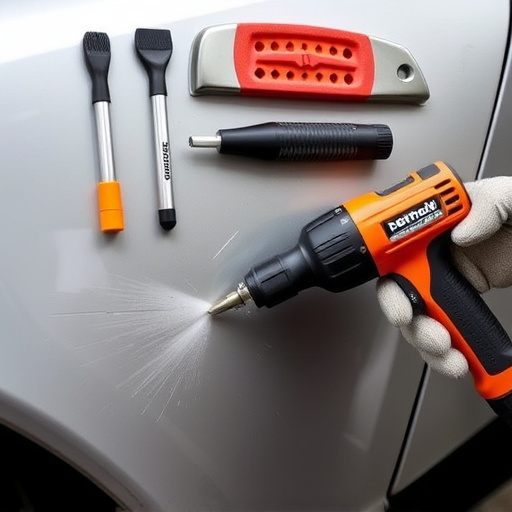
Mercedes impact sensors are critical safety components designed to detect and assess collision severity, triggering appropriate airbags and other passive safety systems. Calibration is a meticulous process that ensures these sensors function accurately in the event of an accident. It involves adjusting the sensor’s response to match specific vehicle models and their unique characteristics. Regular calibration is essential for maintaining the system’s reliability, especially after service procedures such as auto glass replacement or vehicle restoration.
Understanding the calibration process is vital for both vehicle body shop technicians and car owners. During a health test, various scenarios are simulated to verify the sensor’s performance. This includes checking its sensitivity, hysteresis, and output signals under controlled conditions. By comparing these measurements against established benchmarks, any deviations can be identified and rectified, ensuring optimal sensor functionality and enhancing overall vehicle safety in the event of an impact.
System Health Tests for Precise Calibration Verification
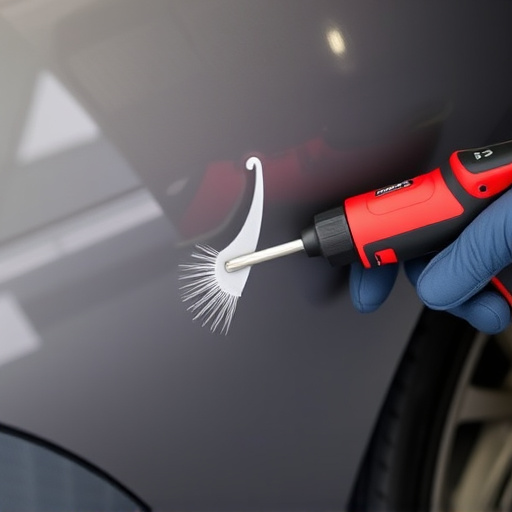
In ensuring optimal performance and safety, System Health Tests play a pivotal role in verifying the precise calibration of Mercedes impact sensors. These tests go beyond mere checks to uncover potential issues or discrepancies that might affect the sensor’s accuracy. By simulating real-world scenarios and subjecting the sensors to rigorous assessments, auto repair shops specializing in Mercedes benz repair can confirm their optimal functioning. This meticulous process is crucial for maintaining the vehicle’s overall safety systems, making it an indispensable step in regular maintenance routines.
Moreover, the system health tests enable mechanics at trusted auto repair services to identify any drift or degradation in sensor calibration over time. This proactive approach allows them to rectify issues before they escalate, enhancing the reliability of impact sensors during critical driving situations. Thus, vehicle owners can rest assured that their Mercedes cars are equipped with accurately calibrated sensors, ready to respond swiftly and effectively in case of accidents.
Ensuring Optimal Safety: Post-Calibration Assessment
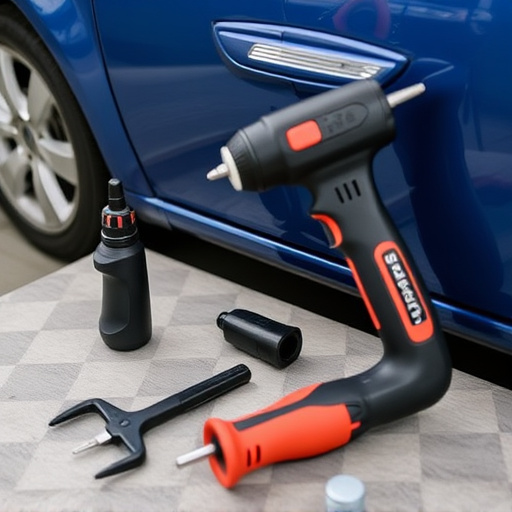
After calibrating a Mercedes impact sensor, it’s crucial to conduct thorough assessments to ensure optimal safety. This involves rigorous system health tests that verify the sensor’s accuracy and responsiveness in various scenarios. These tests mimic real-world collision events, allowing mechanics to validate the sensor’s ability to detect and measure impact forces precisely. By doing so, they guarantee that the Mercedes impact sensor is functioning at peak performance, thereby enhancing the overall safety of the vehicle.
Such assessments are vital components of high-quality car repair services, especially in the domain of collision repair. Proper frame straightening, for instance, relies on accurate impact sensor readings to ensure structural integrity and precise repairs. Mechanics must confirm that the sensor’s calibration aligns with the vehicle’s design specifications and can consistently deliver reliable data during and after the repair process. This attention to detail not only ensures the safety of drivers but also upholds the reputation of professional collision repair services.
Mercedes impact sensor calibration is a critical component of vehicle safety systems. Through rigorous system health tests, manufacturers can verify precise calibration, ensuring optimal performance and enhancing overall safety. By focusing on this crucial aspect, Mercedes continues to set standards for advanced driver assistance systems, ultimately contributing to safer roads for everyone.




